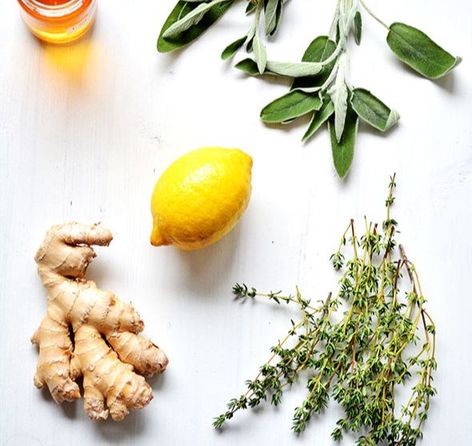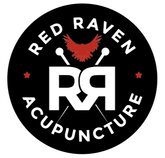
HERBAL MEDICINE
Herbal medicine, along with acupuncture is one of the largest components of Chinese Medical treatment. In fact, many modern pharmaceuticals are based on traditional herbal medicines. The greatest differences between these modern developed medicines and the traditional formulations is two fold. First, the more modern versions are typically a single, chemically isolated component that is concentrated for the medication whereas the traditional medicinals still come largely as whole components such as roots, nuts, or leaves. The second is that modern medicines are typically given one by one unlike the traditional formulations which are made up of anywhere between three to twelve herbal components selected to complement and augment each others functions, while minimizing any undesired effects.
In the end, herbal medicine is not a replacement for Western pharmaceutical medicine, because the pharmaceuticals are typically stronger and can act more rapidly on the body. There are times where this kind of aggressive intervention is necessary, however it is not always the best course. The body resists change with the same vigor that the change is created. This means that with their stronger actions Western meds often result in a wide range of unpleasant side effects and require constant administration to maintain their function, because the body never integrates the changes. Conversely, the more gentle TCM herbs work more slowly, to produce a gradual change over time in body function that will usually produce fewer side effects, and lead to an eventual and permanent functional shift.
Herbal medicine, along with acupuncture is one of the largest components of Chinese Medical treatment. In fact, many modern pharmaceuticals are based on traditional herbal medicines. The greatest differences between these modern developed medicines and the traditional formulations is two fold. First, the more modern versions are typically a single, chemically isolated component that is concentrated for the medication whereas the traditional medicinals still come largely as whole components such as roots, nuts, or leaves. The second is that modern medicines are typically given one by one unlike the traditional formulations which are made up of anywhere between three to twelve herbal components selected to complement and augment each others functions, while minimizing any undesired effects.
In the end, herbal medicine is not a replacement for Western pharmaceutical medicine, because the pharmaceuticals are typically stronger and can act more rapidly on the body. There are times where this kind of aggressive intervention is necessary, however it is not always the best course. The body resists change with the same vigor that the change is created. This means that with their stronger actions Western meds often result in a wide range of unpleasant side effects and require constant administration to maintain their function, because the body never integrates the changes. Conversely, the more gentle TCM herbs work more slowly, to produce a gradual change over time in body function that will usually produce fewer side effects, and lead to an eventual and permanent functional shift.
Custom Herbal Formulas - Liquid Blending
What are liquid herbs?
Liquid herbs are herbal extracts (sometimes called tinctures) created by grinding up fresh or dried herbs and using alcohol to extract the active ingredients. Once extracted you can blend each individual herb together in a formula to treat specific conditions based on your unique symptoms.
Why liquid herbs?
Liquid herbs are extremely valuable medicinals, not only because they are potent, but also because they are so easily absorbed into the body. Since the herbs have been macerated, they digest extremely easily. Since they have been extracted into alcohol, they absorb very quickly into the bloodstream offering a much more rapid delivery service than other forms of herbal medicine.
How do I get started?
If you live in San Antonio or anywhere in the state of Texas, you can book an online herbal consultation to get started. Once you have the paperwork filled out, we will meet for a telehealth appointment and go over your medical history along with your symptoms. Then we will decide on an appropriate course of treatment together and if you're local you can coome pick up the herbs, or we can ship them anywhere in Texas.
Liquid herbs are herbal extracts (sometimes called tinctures) created by grinding up fresh or dried herbs and using alcohol to extract the active ingredients. Once extracted you can blend each individual herb together in a formula to treat specific conditions based on your unique symptoms.
Why liquid herbs?
Liquid herbs are extremely valuable medicinals, not only because they are potent, but also because they are so easily absorbed into the body. Since the herbs have been macerated, they digest extremely easily. Since they have been extracted into alcohol, they absorb very quickly into the bloodstream offering a much more rapid delivery service than other forms of herbal medicine.
How do I get started?
If you live in San Antonio or anywhere in the state of Texas, you can book an online herbal consultation to get started. Once you have the paperwork filled out, we will meet for a telehealth appointment and go over your medical history along with your symptoms. Then we will decide on an appropriate course of treatment together and if you're local you can coome pick up the herbs, or we can ship them anywhere in Texas.
who we are What we DO free consultation CONTACT Resources
By browsing this site, you agree to be bound by the terms of our privacy policy.The information provided in this site is not specific in nature and is not intended to supersede the advice of your physician or other health professional familiar with your unique case.
* Individual results vary. No guarantee of specific results is warranted or implied and your results will depend on many factors (full disclaimer).
